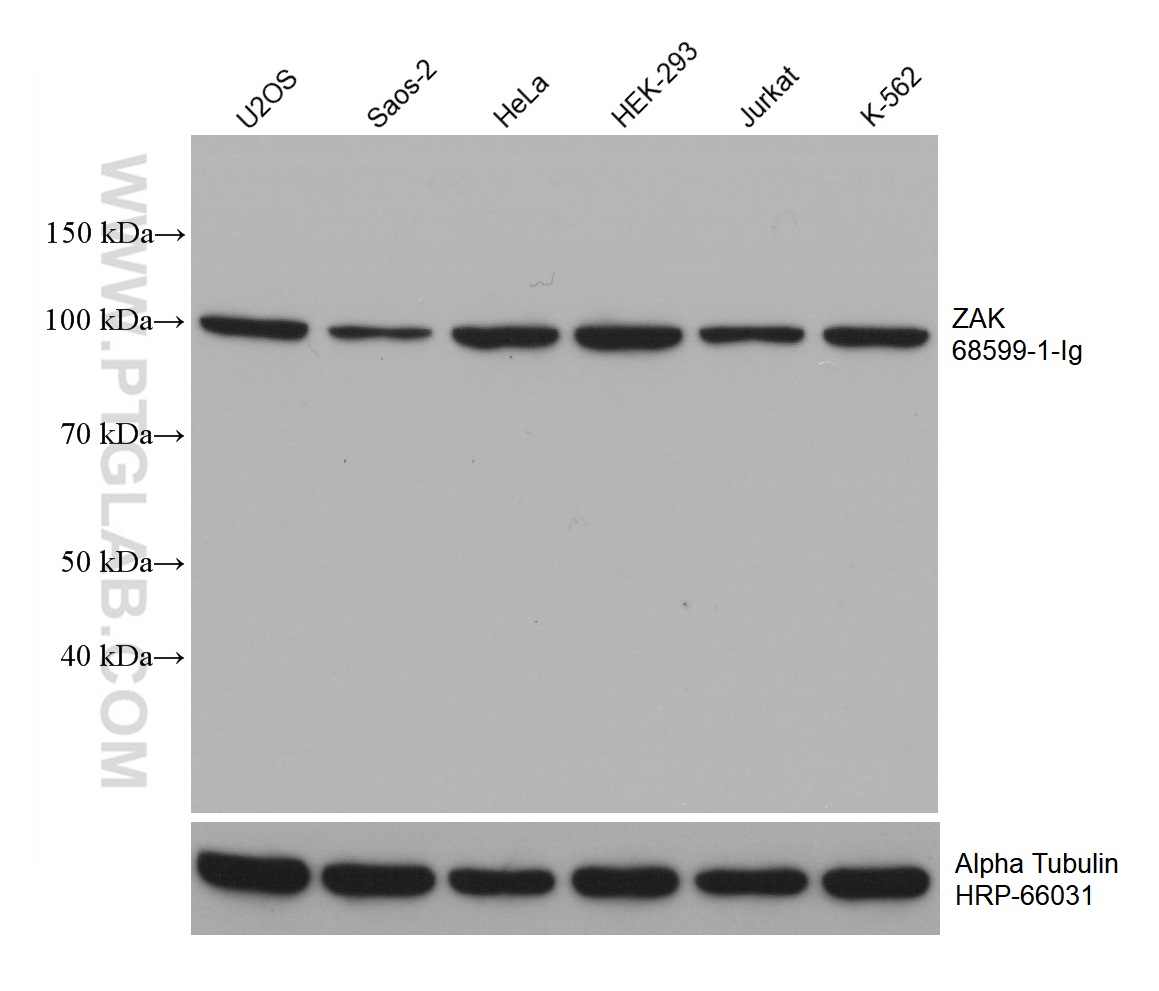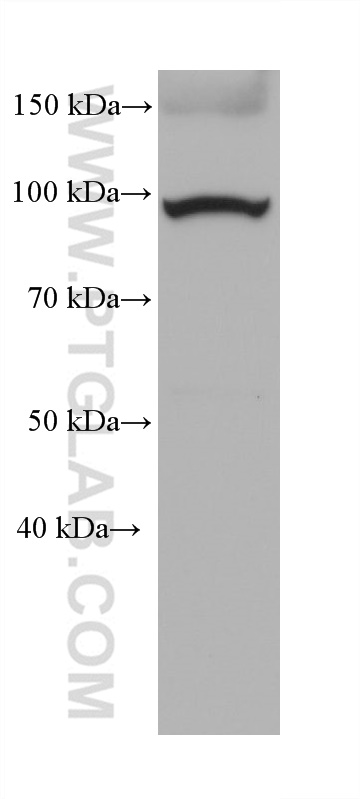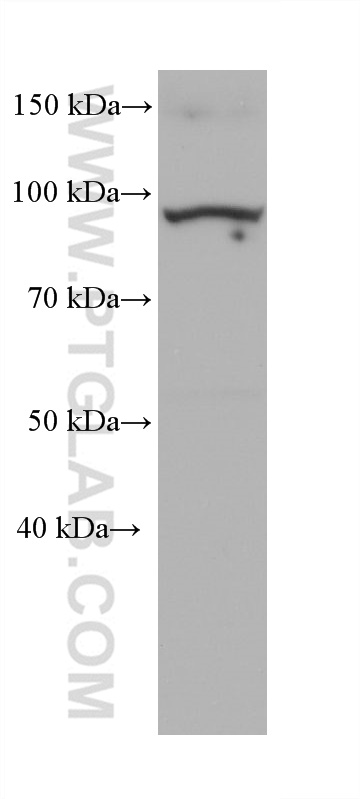验证数据展示
经过测试的应用
| Positive WB detected in | U2OS cells, rat skeletal muscle tissue, rabbit skeletal muscle tissue, Saos-2 cells, HeLa cells, HEK-293 cells, Jurkat cells, K-562 cells |
推荐稀释比
| 应用 | 推荐稀释比 |
|---|---|
| Western Blot (WB) | WB : 1:5000-1:50000 |
| It is recommended that this reagent should be titrated in each testing system to obtain optimal results. | |
| Sample-dependent, Check data in validation data gallery. | |
产品信息
68599-1-Ig targets ZAK in WB, ELISA applications and shows reactivity with human, rat, rabbit samples.
| 经测试应用 | WB, ELISA Application Description |
| 经测试反应性 | human, rat, rabbit |
| 免疫原 |
CatNo: Ag6747 Product name: Recombinant human ZAK protein Source: e coli.-derived, PET28a Tag: 6*His Domain: 1-312 aa of BC001401 Sequence: MSSLGASFVQIKFDDLQFFENCGGGSFGSVYRAKWISQDKEVAVKKLLKIEKEAEILSVLSHRNIIQFYGVILEPPNYGIVTEYASLGSLYDYINSNRSEEMDMDHIMTWATDVAKGMHYLHMEAPVKVIHRDLKSRNVVIAADGVLKICDFGASRFHNHTTHMSLVGTFPWMAPEVIQSLPVSETCDTYSYGVVLWEMLTREVPFKGLEGLQVAWLVVEKNERLTIPSSCPRSFAELLHQCWEADAKKRPSFKQIISILESMSNDTSLPDKCNSFLHNKAEWRCEIEATLERLKKLERDLSFKEQELKERE 种属同源性预测 |
| 宿主/亚型 | Mouse / IgG2a |
| 抗体类别 | Monoclonal |
| 产品类型 | Antibody |
| 全称 | sterile alpha motif and leucine zipper containing kinase AZK |
| 别名 | 2H10E4, AZK, EC:2.7.11.25, HCCS 4, HCCS-4 |
| 计算分子量 | 91 kDa |
| 观测分子量 | 91 kDa |
| GenBank蛋白编号 | BC001401 |
| 基因名称 | ZAK |
| Gene ID (NCBI) | 51776 |
| RRID | AB_3085296 |
| 偶联类型 | Unconjugated |
| 形式 | Liquid |
| 纯化方式 | Protein A purification |
| UNIPROT ID | Q9NYL2 |
| 储存缓冲液 | PBS with 0.02% sodium azide and 50% glycerol, pH 7.3. |
| 储存条件 | Store at -20°C. Stable for one year after shipment. Aliquoting is unnecessary for -20oC storage. |
背景介绍
ZAK(sterile-alpha motif and leucine zipper containing kinase AZK) is also named as MLTK, MAPKKK, mlklak, MLK7, AZK, MLT, MRK, HCCS-4 and belongs to the MAPKKK family. It is a mitogen-activated protein kinase kinase kinase (MAP3K) that activates the stress-activated protein kinase/c-jun N-terminal kinase pathway and activates NF-kappaB. ZAK contributes to regulation of DNA damage checkpoints through a p38gamma-independent pathway. This protein has 3 isoforms produced by alternative splicing with the MW of 91 kDa, 51 kDa and 35 kDa.
实验方案
| Product Specific Protocols | |
|---|---|
| WB protocol for ZAK antibody 68599-1-Ig | Download protocol |
| Standard Protocols | |
|---|---|
| Click here to view our Standard Protocols |




